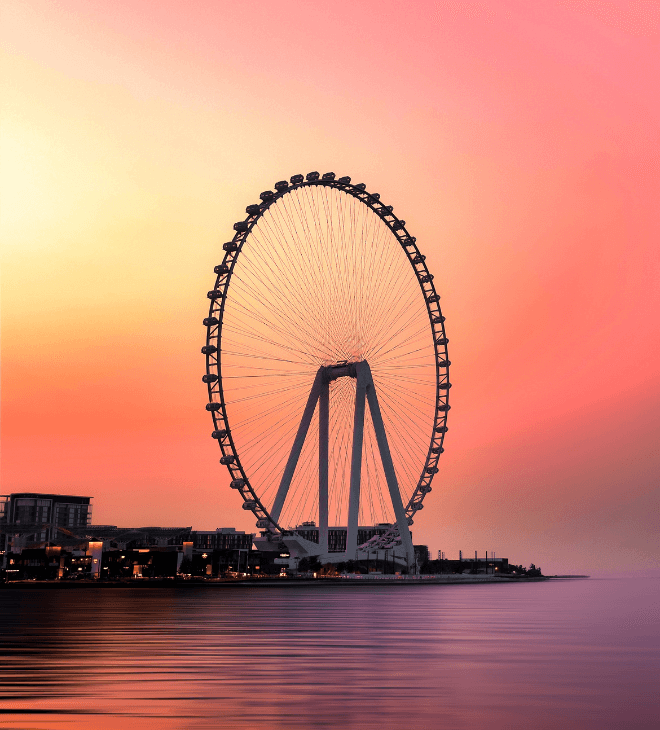How Dubai is Leading the UAE's Push to Welcome 40M Hotel Guests

As one of the world’s most popular tourism destinations, Dubai is playing a leading role in meeting the UAE’s ambitious goal of welcoming 40 million hotel guests annually by 2031.
The emirate, which celebrated reaching the milestone of 150,000 hotel guestrooms in 2023, has an ambitious pipeline of new hotel developments either planned or underway. Backed by initiatives such as the Dubai 2033 Economic Agenda (D33) and the 2040 Urban Master Plan, this planned expansion will help reshape the emirate’s tourism and hospitality sectors and expand Dubai’s appeal to new markets worldwide.
According to official data, the UAE’s tourism industry expanded by 26% year on year in 2023, surpassing pre-pandemic levels by 14%. The industry generated AED 220 billion (US$60bn) in revenues last year, accounting for 11.7% of GDP. This figure is forecast to rise to AED 236 billion this year, or 12% of GDP.
Speaking at a recent meeting of the Emirates Tourism Council, His Excellency Abdulla bin Touq Al Marri, UAE Minister of Economy, said: "Under the wise leadership directives, the UAE's tourism industry is experiencing significant growth and diversification. The sector’s AED 220 billion contribution to the national economy takes us halfway towards the achievement of the goal set by the UAE Tourism Strategy 2031. Our ultimate goal is to increase the sector's contribution to the country's GDP to AED 450 billion by 2031."
Dubai’s growing hotel guestroom inventory
Dubai’s hotel guestroom inventory, which currently stands at 151,417, is forecast to increase to 157,092 by the end of 2025.
Dubai’s 5-star hotel segment is expected to see a notable increase in inventory, rising from 51,809 guestrooms in 2023 to 53,771 by 2025. Luxury hotels remain a key draw for affluent visitors, particularly those from the Gulf Cooperation Council (GCC) region and Western markets.
However, Dubai is strategically positioning itself to appeal to a more diverse visitor demographic by expanding its mid-market offerings as well, with The First Group playing a leading role in driving growth within this sector.
As a result, the 4-star hotel segment is projected to grow at an even faster rate, with a 4% CAGR expected between 2023 and 2025, rising from 43,283 to 46,645 guestrooms.
New initiatives to expand tourism and hospitality sectors
Dubai is also rolling out a series of landmark initiatives that will underpin the growth of its tourism and hospitality sectors. The Dubai 2033 Economic Agenda (D33) aims to double the size of the emirate’s economy and establish it as one of the world’s top three cities for business and tourism by 2033.
Key projects currently underway such as Dubai Islands and Dubai Creek Harbour will house thousands of new hotel rooms, further boosting Dubai’s guestroom inventory. These large-scale developments will feature luxury hotels, leisure attractions, and waterfront experiences that have a strong focus on sustainable development. The city's commitment to sustainable tourism is reflected in its plans to align with broader environmental goals, a theme echoed in the D33 agenda.
The meetings, incentives, conferences, and events (MICE) sector is another cornerstone of Dubai’s economic growth strategy. The city has long been a favoured destination for high-profile international events, and the continued growth of its hotel infrastructure will prove critical to accommodating the rising number of international MICE delegates who will visit the city in the coming years.
2040 Urban Master Plan: A sustainable vision for urban development
While the D33 agenda emphasises economic growth and diversification, the 2040 Urban Master Plan provides a comprehensive framework for Dubai’s sustainable development over the next 16 years. This forward-looking blueprint provides a roadmap for Dubai’s growth, as it gears up to accommodate 5.8 million residents by 2040, while enhancing the quality of life for residents and visitors alike.
A key feature of the 2040 plan is its commitment to sustainability, with a focus on doubling the number of green spaces and recreational areas to encompass 60% of Dubai’s urban environment by 2040. These green corridors will connect the city’s residential, business, and leisure districts, creating an enhanced living experience for residents while boosting its appeal to business and leisure visitors.
For the hotel and tourism sectors, the 2040 Urban Master Plan promises a 134% increase in the space dedicated to hotels and tourism activities. This expansion will be accompanied by a 400% increase in public beach areas, creating new opportunities for tourism and leisure developments.
With its clear vision for growth, Dubai is well-positioned to attract millions of more tourists in the coming years, while helping the UAE reach its ambition of welcoming 40 million hotel guests by 2031.



